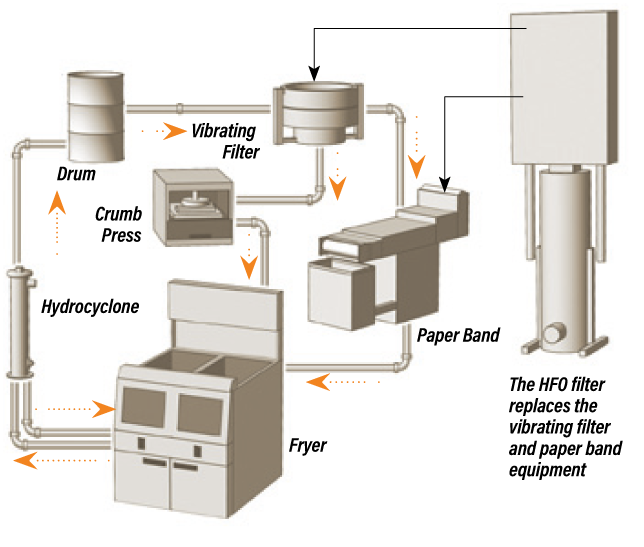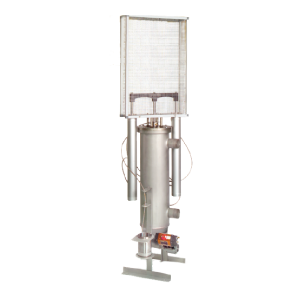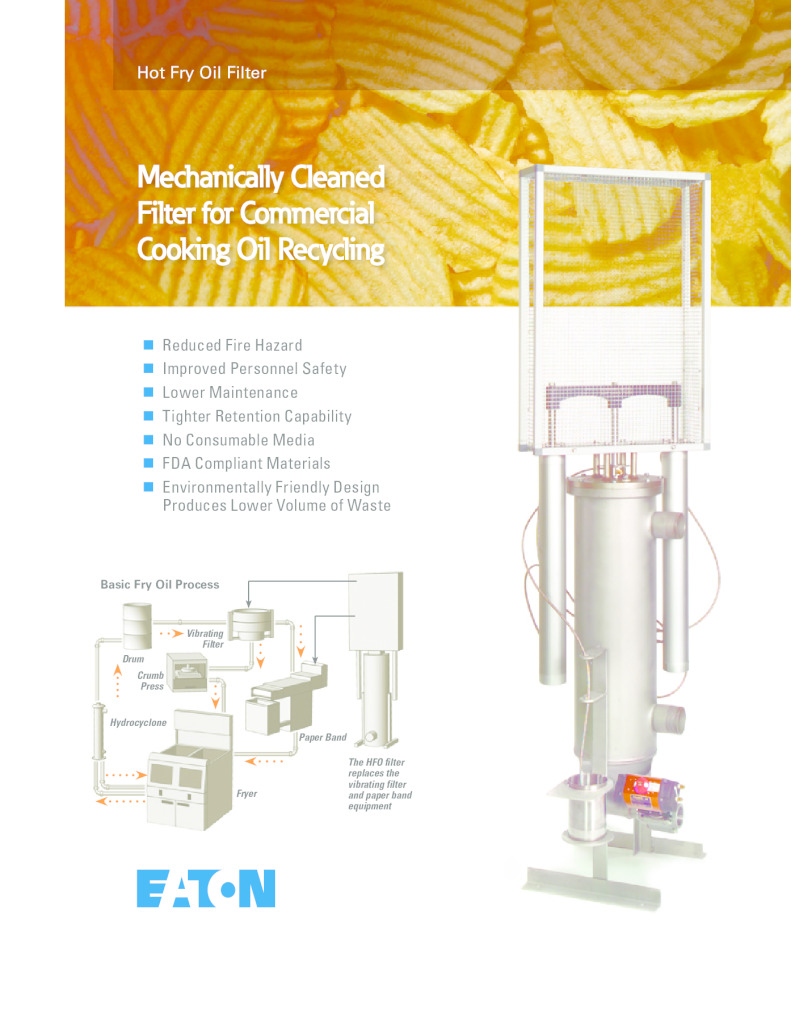Eaton Hot Fry Oil Filters are mechanically cleaned filters for commercial cooking oil recycling – replacing the vibrating filter and paper band equipment. Temperature maximum 400° F (204° C).
Eaton Hot Fry Oil Filters – Basic Fry Oil Process
 |
EATON Hot Fry Oil Filters – Specifications
Specifications |
|
|---|---|
| Total Volumetric Capacity | 11 gal | 41.6 liters |
| Purge Chamber Capacity | 1.5 gal | 6 liters |
| Filtration Surface Area | 610 in² | 3935 cm² |
| Flow Rate Range at 100μ | 30 – 200 gpm | 6.8-45.4 m³/hr |
| Maximum Temperature | 400° F | 204° C |
| Maximum Pressure | 150 psi | 10 bar |
| Minimum Pressure | 30 psi | 2 bar |
| Single Unit Weight | 250 lbs | 113.4 kg |
| Air Requirement | 80 psi to 120 psi | 5.5 to 8.2 bar – 5.5 cfm |
EATON Hot Fry Oil Filters Features
- Reduced Fire Hazard
- Improved Personnel Safety
- Lower Maintenance
- Tighter Retention Capability
- No Consumable Media
- FDA Compliant Materials
- Environmentally Friendly Design
- Produces Lower Volume of Waste
Powered by DCF Self Cleaning Technology
- High turn-over rates result in improved quality
- Reduced oxidation rates of non-hydrogenated oil
- Tighter filter retentions optimize crumb removal
- Closed system reduces employee exposure
- Eliminates costs associated with consumable media
- Environmentally friendly design reduces disposal costs
- Unique leak containment system
How the Self-Cleaning Hot Fry Oil Filter Works:
- The unfiltered oil flows in the top filter inlet and passes from the inside to the outside of the 316 stainless steel slotted filter media.
- The unwanted solids are retained on the inside of the screen, and the filtered oil exits the filter through the bottom outlet and goes to the process.
- A spring loaded cleaning disc periodically wipes the internal surface of the filter media, removing the collected debris and directing it to the bottom chamber out of the flow path.
- The idea is to wipe the filter media as often as necessary to maintain a very low, constant, clean differential pressure across the system.
- The collected debris is automatically purged from the filter — using system pressure — in .7 seconds.
- Typically, the purge function takes place every 1 – 4 hours depending on the amount of collected debris.





